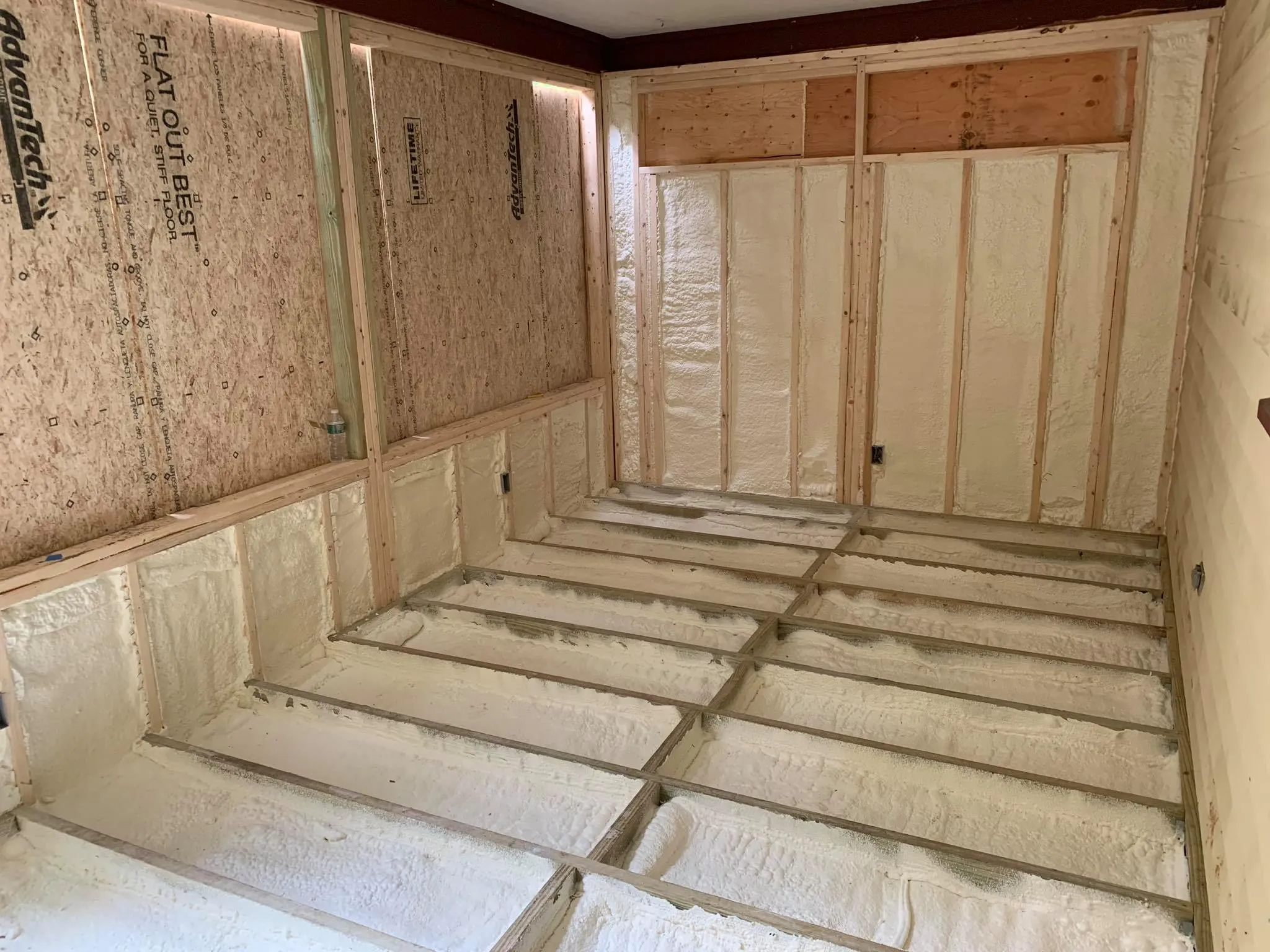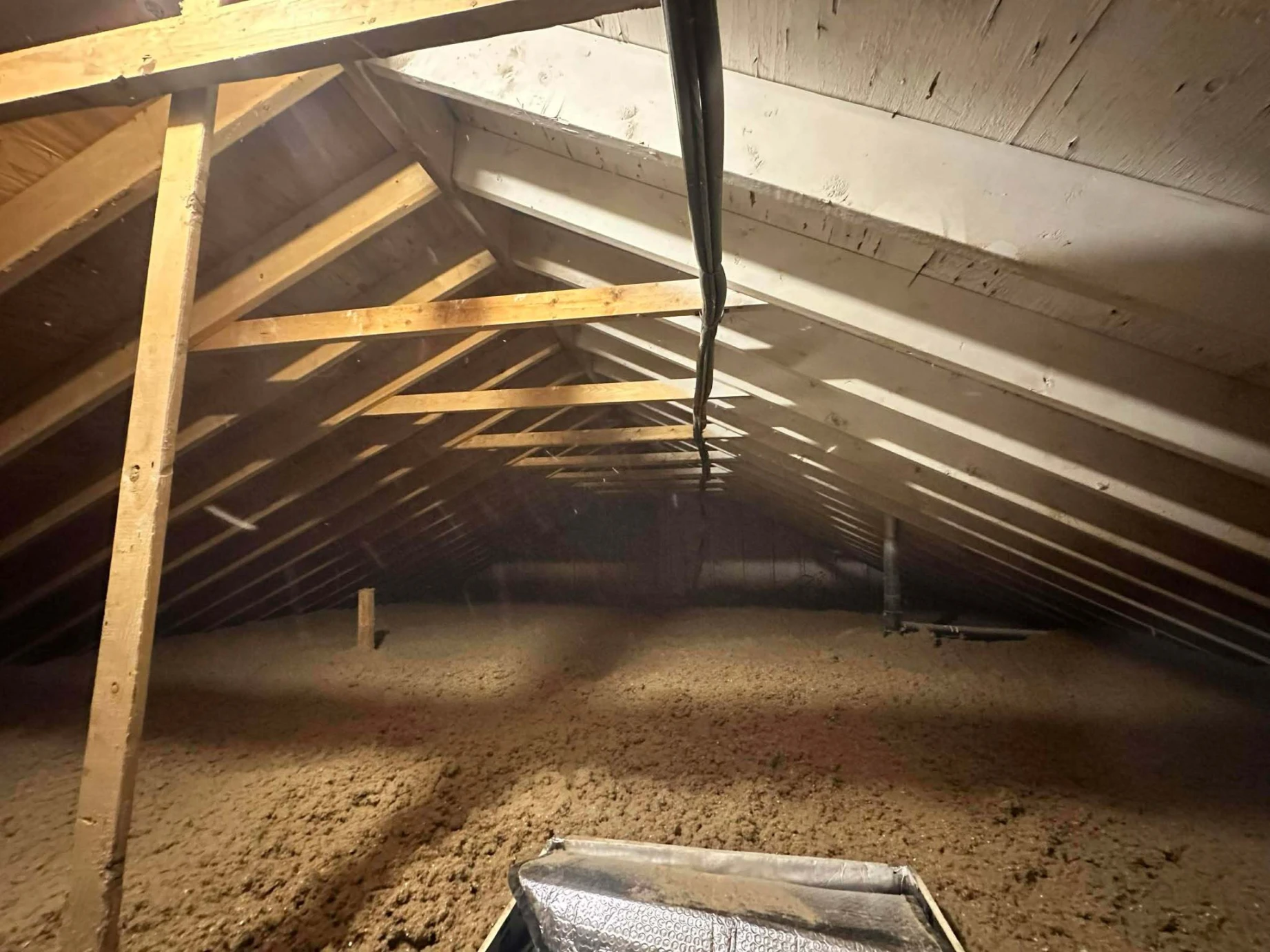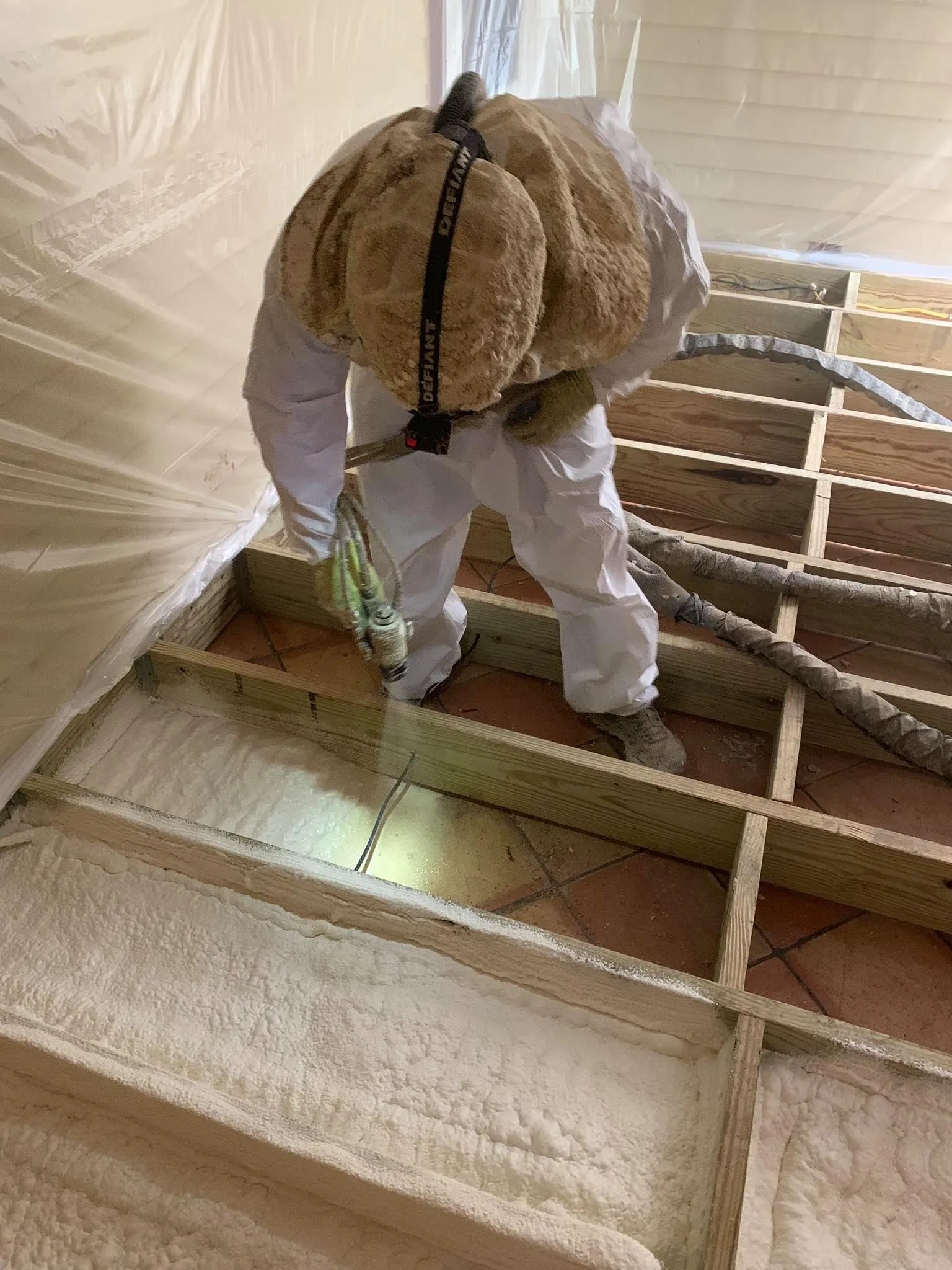
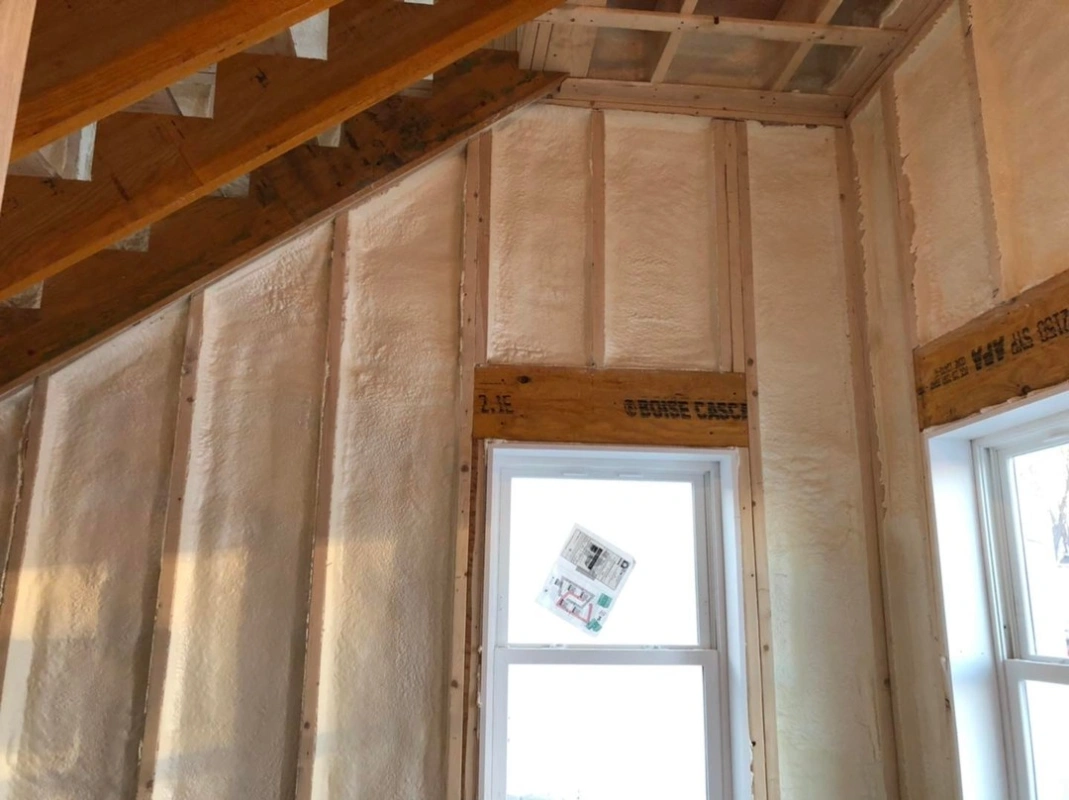
Spray foam insulation is highly effective in Lowell due to specific regional climate factors that directly impact home energy efficiency and structural integrity. The area’s mix of humid summers, frigid winters, and high moisture levels creates persistent challenges for both temperature control and vapor management. Open-cell and closed-cell spray foam address these challenges by providing an air seal that traditional insulation methods cannot match.
Spray foam insulation in Lowell also resists moisture intrusion, which is essential in Lowell where rainfall and snowmelt contribute to elevated humidity levels inside wall cavities. This dual function—air sealing and moisture resistance—makes spray foam a practical solution for homeowners seeking long-term insulation performance.
This guide explains how Lowell’s climate affects insulation needs and why spray foam remains a superior option. The information is based on firsthand installation experience in Middlesex County homes, regional performance data, and product field tests.
| Climate Factor | Impact on Homes | Spray Foam Response |
|---|---|---|
| Subzero Winter Temperatures | Heat loss through gaps, higher energy bills | Closed-cell provides thermal break and air seal |
| Summer Humidity (80%+) | Moisture buildup, mold risk in cavities | Open-cell manages vapor diffusion effectively |
| Nor’easters and Wind Gusts | Air leaks around penetrations and framing | Expands to seal even irregular cavities |
| Frequent Freeze/Thaw Cycles | Material degradation, cracks, insulation gaps | Maintains structure and insulation integrity |
| Heavy Snow Loads | Ice dam formation from attic heat loss | Reduces thermal bridging through roof assemblies |
| Feature | Open-Cell Spray Foam | Closed-Cell Spray Foam |
|---|---|---|
| R-Value per Inch | ~3.5 | ~6.5 |
| Air Seal Performance | High | Very High |
| Vapor Resistance | Low | High |
| Expansion Rate | ~100x original volume | ~30-50x original volume |
| Structural Rigidity | Flexible | Adds racking strength |
| Best Use Case | Interior walls, attics | Basements, roofs, exterior walls |
In Lowell, using closed-cell foam on the underside of roof decks helps prevent condensation during January temperature swings and reduces the risk of ice damming.
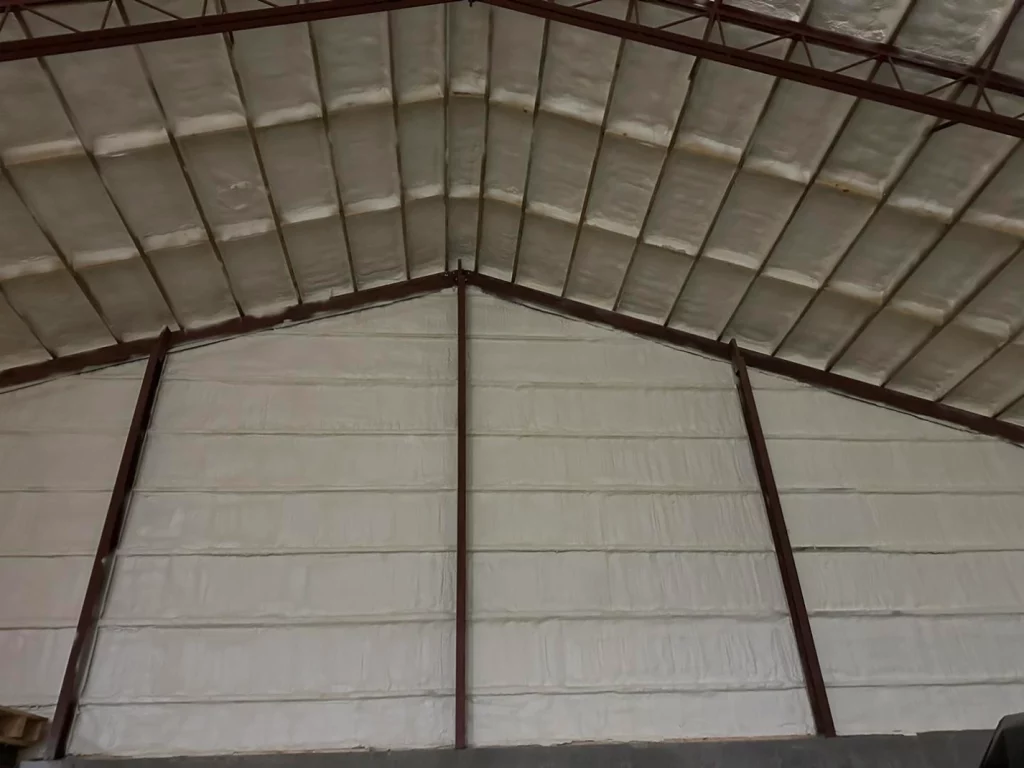
In mixed-humidity areas like Lowell, a hybrid approach—closed-cell in basements and open-cell in attics—offers cost control with performance.
Start with attics and rim joists. These are common areas of heat loss and air leakage.
Not recommended. Open-cell allows vapor diffusion and may absorb moisture in basements.
When installed properly and cured, spray foam does not release harmful emissions.
Most products retain performance for 30+ years when protected from UV and physical damage.
For expert advice on how to address Lowell’s climate-specific insulation challenges, contact Lamothe Insulation & Contracting. Whether replacing underperforming insulation or upgrading to spray foam, proven field expertise ensures effective results.
Phone: (508) 847-0119
Email: [email protected]
Closed-cell spray foam maintains shape and adhesion, reducing structural stress and air gaps.
Yes, it seals out humid air and helps maintain indoor humidity levels.
Most residential spray foam jobs are completed within 1-2 days, depending on scope.
Yes, Mass Save offers insulation rebates for qualifying spray foam installations.
Only open-cell may need one depending on application. Closed-cell typically meets vapor requirements on its own.

